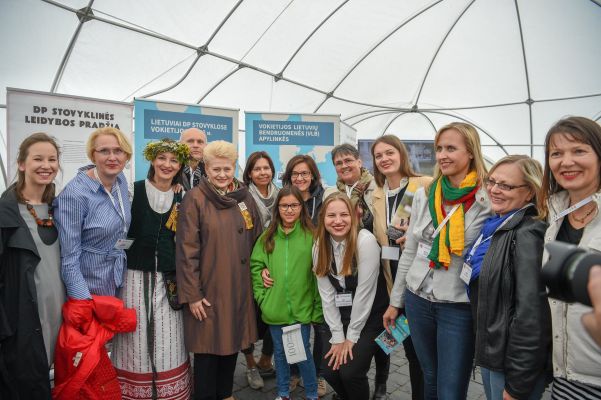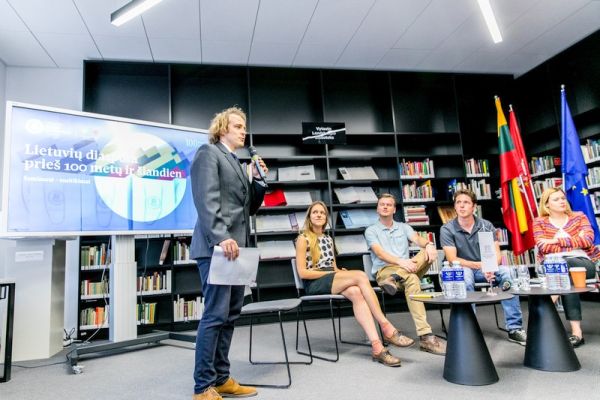
Thousands of Lithuanians living abroad came to Lithuania to celebrate country’s 100 anniversary of independence this summer. The National Library of Lithuania participated in and organized and hosted several events.
On July 1, the Lithuanian Studies Unit of the Documentary Heritage Research Department presented its travelling exhibition “Lithuanian Publishing in Post-WWII Europe” as part of the event “100 Faces of Lithuania – Let’s Connect Lithuania” in Vilnius City Hall Square. The exhibition reflects the situation of Lithuanians in the displaced persons’ camps in Western countries after WWII.

On July 9, the representatives of the World Lithuanian University at Vytautas Magnus University and the World Lithuanian Youth Association invited the members of Lithuanian diaspora and Lithuanians living in the country to discuss the changes in Lithuanian diaspora’s consciousness. Manvydas Džiaugys (Vytautas Magnus University), Marija Antanavičiūtė (Lithuanian Youth Association in the UK), Dovas Lietuvninkas (Lithuanian American Community, Inc.), Irena Kowalewska (Lithuanian Students’ Club Abroad), Rimas Leonavičius (Uruguayan Lithuanian Community), Sandra Bernotaitė (editor-in-chief of the magazine “The World Lithuanian”), Dr. Darius Udrys (Vilnius University), and Prof. Egidijus Aleksandravičius (Vytautas Magnus University) discussed questions: What defines world Lithuanian youth? Are world Lithuanian youth, emigrants and diaspora identical? Do students who study abroad constitute diaspora? and etc. Vladas Oleinikovas, the chairman of the World Lithuanian Youth Association, led the discussion.
On the same day, the National Library of Lithuania hosted another event – the presentation of the book “History of Lithuania. From Medieval Kingdom to Modern Democracy.” The book was written and published by American-Lithuanians. The publication, written in English, provides yet another opportunity to introduce the past of Lithuanian people to a broader audience.